Slave Narratives
Narratives from Former Slaves
During the era of slavery in America, many African Americans were able to share their stories and experiences through the medium of narrative. These narratives, written by former slaves themselves, offer a unique and invaluable perspective on the horrors and hardships of slavery. By recounting their personal accounts, these individuals were able to shed light on the cruel and oppressive nature of slavery, while also highlighting their resilience and triumphs. The narratives from former slaves serve as important historical documents, allowing readers to gain a deeper understanding of the African American experience during this dark period in American history.Significance of Slave Narratives in African American History
The significance of slave narratives in African American history cannot be overstated. These narratives not only shed light on the harsh realities of slavery but also played a crucial role in shaping public opinion on the institution. By sharing their stories, former slaves were able to humanize themselves and challenge the dehumanizing stereotypes perpetuated by pro-slavery advocates. These narratives exposed the inhumanity of slavery, creating a moral imperative for its abolishment. Furthermore, they served as a catalyst for the abolitionist movement, inspiring activists and rallying support for the fight against slavery. Today, these narratives continue to be valued as important historical records and a testament to the resilience and strength of those who endured slavery.Authors of Important Slave Narratives
Many brave individuals contributed to the rich legacy of slave narratives. Some of the most notable authors include Frederick Douglass, Harriet Jacobs, and Solomon Northup. Frederick Douglass, one of the most influential African American abolitionists, penned his autobiography titled "Narrative of the Life of Frederick Douglass, an American Slave." Harriet Jacobs, in her memoir "Incidents in the Life of a Slave Girl," offered a unique perspective on the experiences of enslaved women. Solomon Northup's "Twelve Years a Slave" recounted his own harrowing journey from freedom to slavery and back to freedom again. These authors and many others who shared their stories deserve recognition for their bravery and contribution to African American history.Harlem Renaissance Literature
Overview of the Harlem Renaissance
The Harlem Renaissance was a cultural and artistic movement that took place in the 1920s and 1930s in Harlem, New York. It was a time of great cultural and intellectual awakening for African Americans, who sought to break free from the constraints of racial discrimination and celebrate their heritage through various art forms. Literature, in particular, played a central role in the Harlem Renaissance, with writers exploring themes of race, identity, and the African American experience. This vibrant and creative movement not only produced remarkable works of literature but also gave a voice to a generation of African American artists, intellectuals, and activists.Prominent African American Authors of the Harlem Renaissance
The Harlem Renaissance was marked by the emergence of many talented and influential African American authors. Langston Hughes, known as the "Poet Laureate of Harlem," captured the spirit and struggles of African Americans in his poetry and plays. Zora Neale Hurston, a pivotal figure in the movement, celebrated the folklore and traditions of the African American community in her novels and anthropological works. Countee Cullen, another notable writer, explored themes of identity and race through his poetry. These authors and many others contributed to the rich literary landscape of the Harlem Renaissance, leaving an indelible mark on African American literature.Key Themes and Motifs in Harlem Renaissance Literature
Harlem Renaissance literature was characterized by several key themes and motifs that reflected the social, cultural, and political climate of the time. One prominent theme was the exploration of African American identity and pride. Writers delved into questions of what it meant to be black in a society dominated by white culture and wrestled with the complexities of racial identity. Another prevalent theme was the celebration and preservation of African American culture and heritage. Authors were eager to reclaim and highlight the contributions of African Americans to American society, challenging prevailing narratives of white superiority. Other recurring motifs included the search for freedom and equality, the experiences of migration and urban life, and the realities of racial discrimination. These themes and motifs shaped the literature of the Harlem Renaissance and continue to resonate in African American literature today.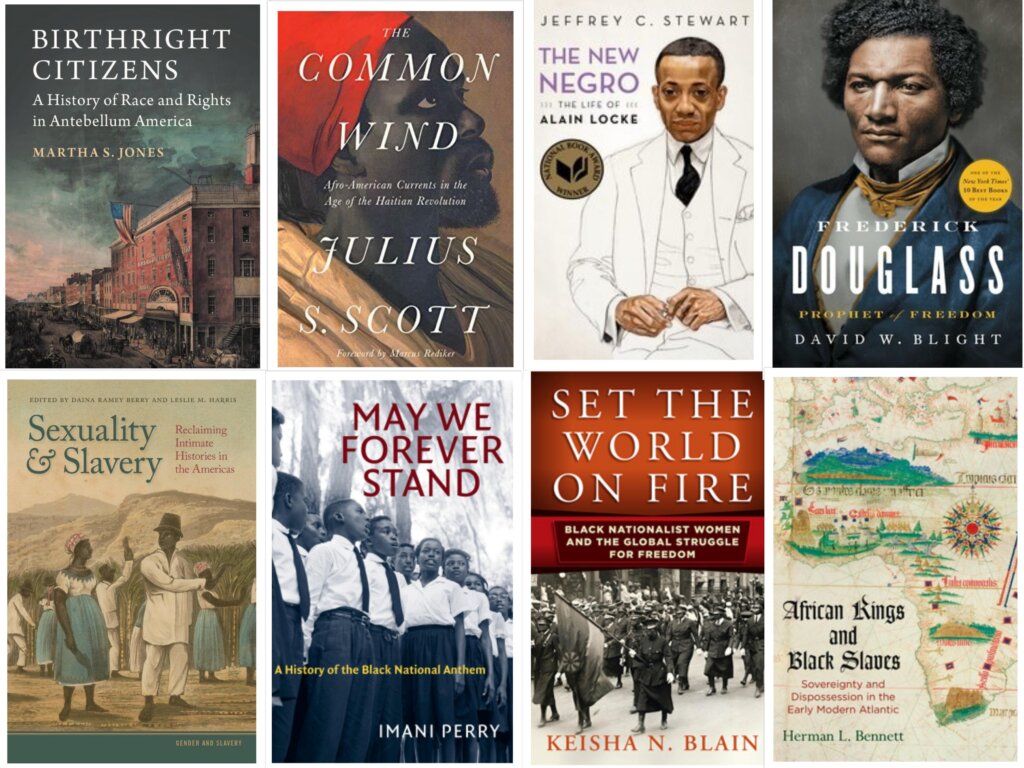
Civil Rights Era Literature
Impact of the Civil Rights Movement on African American Literature
The Civil Rights Movement, a pivotal moment in American history, had a profound impact on African American literature. As activists fought for equal rights and an end to racial segregation, writers played a crucial role in bringing attention to social injustices and advocating for change. African American literature of this era often reflected the struggle for civil rights, addressing issues such as racial inequality, police brutality, and systemic discrimination. By giving voice to these experiences and engaging in social commentary, authors contributed to the broader movement for justice and equality.Key Authors and Works from the Civil Rights Era
Numerous influential authors emerged during the Civil Rights Era, using their words to challenge societal norms and advocate for change. James Baldwin, in his novels and essays, explored themes of racial and sexual identity, exposing the realities of racism in America. Maya Angelou, through her powerful poetry and memoirs, captured the triumphs and struggles of African Americans during the civil rights movement. Toni Morrison, another prominent voice, tackled themes of race, gender, and identity in her novels, earning her a Nobel Prize in Literature. These authors, alongside many others, left an indelible mark on African American literature with their powerful and thought-provoking works.The Role of Literature in Advancing Civil Rights
Literature played a significant role in advancing the civil rights movement by amplifying marginalized voices, challenging the status quo, and inspiring social change. African American authors used their works to raise awareness about racial injustices and to humanize the experiences of African Americans. Through storytelling, they fostered empathy, encouraged dialogue, and ultimately contributed to shifting public opinion. Literature served as a powerful tool for empowerment and liberation, helping to mobilize activists and galvanize support for the fight against racism and segregation. Today, the literature of the civil rights era continues to inspire and educate, reminding us of the power of words in effecting social change.Contemporary African American Literature
Diversity and Range in Contemporary African American Literature
Contemporary African American literature encompasses a wide range of voices and experiences, reflecting the diversity within the African American community. Authors today explore a multitude of themes, from identity and race to social issues and personal struggles. This rich tapestry of narratives offers readers a nuanced and multifaceted portrayal of African American life. Contemporary literature also challenges stereotypes and breaks new ground in terms of genre, style, and narrative structure. From literary fiction to speculative fiction, memoirs to poetry, contemporary African American literature is a testament to the breadth and depth of talent within the community.Exploration of Identity and Intersectionality in Recent Works
Many recent works of African American literature delve into the exploration of identity and intersectionality. Authors navigate the complexities of race, gender, class, and sexuality, examining how these intersecting identities shape individual experiences. These narratives highlight the unique challenges faced by individuals at various intersections of identity, offering insights into the diverse lived experiences within the African American community. By centering intersectionality, contemporary African American literature fosters a more nuanced and inclusive understanding of identity and pushes boundaries in terms of representation and visibility.Critiques and Challenges Faced by Contemporary African American Authors
Despite the increasing visibility and recognition of contemporary African American literature, authors face various critiques and challenges. Some critics argue that African American authors are pigeonholed and expected to write solely about race-related issues, limiting their creative freedom. Others contend that there is still a lack of diversity within the publishing industry, making it difficult for African American authors to gain visibility and reach a wide audience. Additionally, there is ongoing debate and scrutiny surrounding issues of authenticity and representation, with some questioning whether certain portrayals of African American life perpetuate harmful stereotypes. These challenges engender important discussions about the dynamics of power within the literary world and the need for diverse voices to be valued and supported.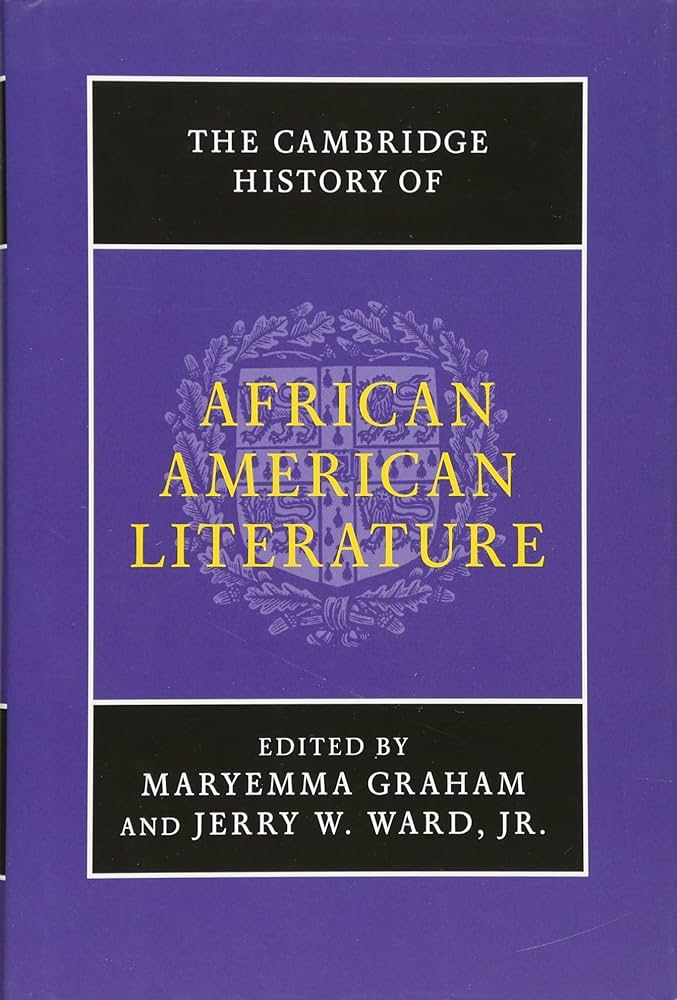
African American Poetry
The Influence of African American Poetry on American Literature
African American poetry has had a profound influence on the literary landscape of the United States. From the early works of Harlem Renaissance poets to contemporary voices, African American poets have left an indelible mark on American literature. Through their poetic expressions, these writers have given voice to the struggles, triumphs, and joys of the African American experience. African American poetry has enriched the American literary canon by introducing unique perspectives, exploring themes of race and identity, and challenging societal norms. It has inspired generations of poets and readers, ultimately shaping the broader literary tradition of the nation.Prominent African American Poets Throughout History
Throughout history, numerous African American poets have made significant contributions to the world of literature. Langston Hughes, often regarded as one of the most influential figures in African American poetry, addressed themes of dreams, hopes, and racial inequality in his works. Maya Angelou, renowned for her powerful and emotive poetry, captured the resilience and beauty of the human spirit. Gwendolyn Brooks, the first African American to win the Pulitzer Prize for Poetry, explored themes of race, gender, and social justice in her groundbreaking poetry. These poets, among many others, have left an enduring legacy and shaped the trajectory of African American poetry.Themes and Styles in African American Poetry
African American poetry encompasses a wide range of themes and styles, reflecting the diverse experiences and perspectives within the community. Some common themes explored in African American poetry include racial identity, inequality, resilience, cultural heritage, and the quest for freedom. Poets often employ various stylistic techniques, such as the use of vernacular language, rhythmic patterns, repetition, and imagery rooted in African American traditions. These stylistic choices not only add depth and resonance to the poems but also serve as a creative expression of the African American cultural experience. Through their unique blending of themes and styles, African American poets continue to push the boundaries of poetic innovation and artistic expression.Autobiographies and Memoirs
The Power of Personal Narratives in Understanding African American History
Autobiographies and memoirs written by African Americans provide invaluable insights into the lived experiences and historical context of the African American community. These personal narratives offer a firsthand account of the struggles, triumphs, and resilience of individuals throughout different periods of history. By sharing their stories, authors shed light on the social, cultural, and political challenges faced by African Americans, ultimately contributing to a deeper understanding of African American history. Autobiographies and memoirs serve as a powerful tool for preserving and sharing marginalized voices, ensuring that their stories are not forgotten or erased.Iconic Autobiographies and Memoirs by African Americans
Many iconic autobiographies and memoirs penned by African Americans have made a lasting impact on literature and history. "The Autobiography of Malcolm X," as told to Alex Haley, traces the life of one of the most influential figures in the civil rights movement. This seminal work explores Malcolm X's transformation from a troubled youth to a powerful advocate for African American rights. "I Know Why the Caged Bird Sings" by Maya Angelou is another iconic memoir that recounts Angelou's experiences growing up in the Jim Crow South and her journey towards self-acceptance and empowerment. Other notable works include "Narrative of the Life of Frederick Douglass, an American Slave" and "The Souls of Black Folk" by W.E.B. Du Bois. These autobiographies and memoirs continue to be celebrated for their profound impact on literature and their role in shaping African American identity.The Role of Autobiographies in Shaping African American Identity
Autobiographies and memoirs play a crucial role in shaping African American identity by providing a platform for individuals to assert their own narratives. Through the telling of their personal stories, authors affirm their experiences, challenge dominant narratives, and contribute to the development of a collective African American identity. Autobiographies highlight the struggles, triumphs, and complexities of African American life, fostering a sense of pride and resilience within the community. By centering diverse voices and experiences, autobiographies empower individuals to reclaim their history and shape the narrative of African American identity on their own terms.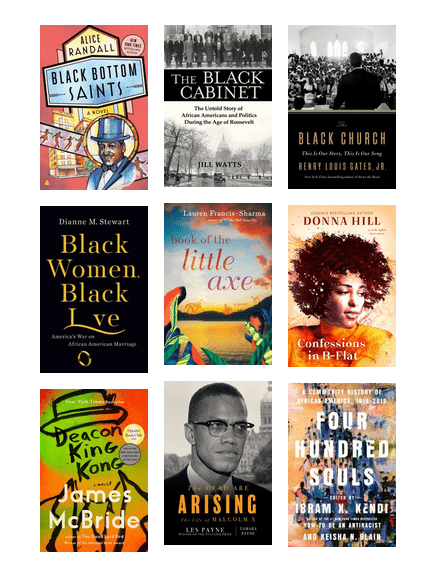
African American Fiction
Exploration of African American Identity through Fiction
African American fiction has long been a vehicle for exploring the complexities of African American identity and challenging prevalent narratives. Through the medium of fiction, authors can imaginatively delve into various aspects of the African American experience, including race, history, culture, and personal identity. Fiction allows for creative storytelling that can transcend the constraints of non-fiction, enabling authors to engage with universal themes while retaining a distinct African American perspective. By exploring African American identity through fiction, authors offer readers a deeper understanding and appreciation of the diverse experiences within the community.Critically Acclaimed African American Novels
Numerous African American novels have achieved critical acclaim for their literary merit and impact on the literary world. Toni Morrison's "Beloved" is a haunting and powerful novel that explores the legacy of slavery and the quest for freedom and identity. Ralph Ellison's "Invisible Man" is a thought-provoking masterpiece that delves into themes of invisibility, race, and identity in America. Colson Whitehead's "The Underground Railroad" reimagines the underground railroad as a literal network of escape for enslaved individuals. These novels, along with many others, have received prestigious literary awards and cemented their authors' place in the canon of African American literature.Genres and Styles within African American Fiction
African American fiction encompasses a diverse range of genres and styles, reflecting the creativity and innovation within the African American literary tradition. Literary fiction, with its focus on complex characters and themes, explores the intricacies of African American life and identity. Historical fiction allows authors to reimagine and reinterpret the past, bringing to life important moments in African American history. Urban fiction examines contemporary urban life, often highlighting social issues and the experiences of marginalized communities. Speculative fiction, including Afrofuturism, blends elements of science fiction and fantasy with African and African American cultural themes. Through these various genres and styles, African American fiction continues to evolve and push the boundaries of storytelling.Children's Literature
Importance of African American Children's Literature
African American children's literature plays a vital role in providing representation and empowering young readers. It is essential for children to see themselves reflected in the stories they read, as it allows them to develop a positive sense of self and cultural identity. African American children's literature also fosters empathy and understanding among young readers, exposing them to diverse perspectives and experiences. By featuring African American protagonists, authors ensure that young readers from all backgrounds have access to a rich array of stories and characters that celebrate the beauty and diversity of African American culture.Key Authors and Books for Young Readers
Numerous talented authors have contributed to African American children's literature, creating memorable characters and stories that resonate with young readers. Jacqueline Woodson, through works like "Brown Girl Dreaming" and "Each Kindness," explores themes of identity, family, and empathy in a way that is accessible to young readers. Jerry Craft's graphic novel "New Kid" tackles issues of race and identity through the eyes of a young African American boy navigating a predominantly white private school. Angela Johnson's "The First Part Last" is a powerful novel that addresses the responsibilities and joys of teenage fatherhood. These authors and their books, among many others, have become beloved staples in the world of African American children's literature.Representation and Empowerment in Children's Books
Representation and empowerment are at the heart of African American children's literature. Through diverse and inclusive stories, young readers are able to see themselves as protagonists, heroes, and contributors to society. This representation not only fosters a sense of pride but also promotes self-confidence and self-worth among African American children. In addition, African American children's literature serves as a tool of empowerment by exposing young readers to positive role models, showcasing the achievements and potential of African Americans across various fields. Through these narratives, children are inspired to dream, aspire, and believe in their own ability to make a difference in the world.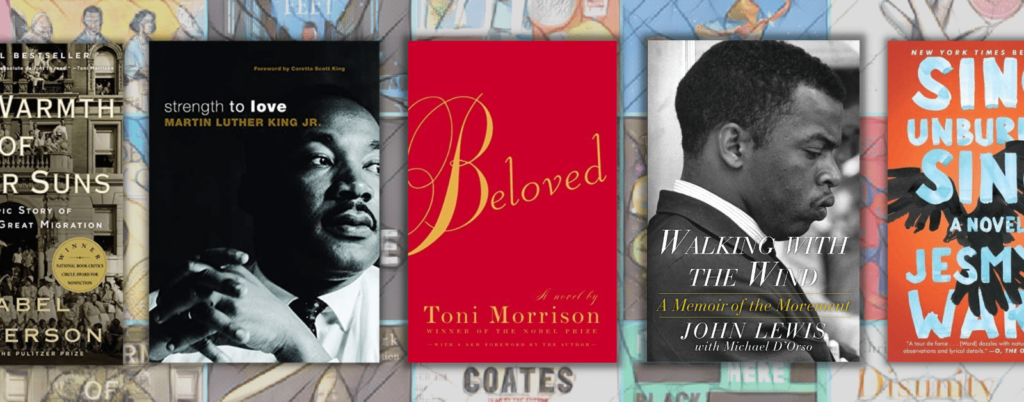
African American Women Writers
Recognition and Contributions of African American Women Writers
African American women writers have made significant contributions to literature and have emerged as influential voices within the African American literary tradition. Despite facing multiple forms of discrimination, these women have persevered, using their words to give voice to the unique experiences and perspectives of African American women. Their contributions have enriched the literary canon, challenged societal norms, and brought attention to the intersecting identities of race, gender, and class. Through their writings, African American women writers have paved the way for future generations of women of color to share their stories and shape the literary landscape.Representation of Intersectional Identities in Women's Literature
Intersectionality is a central theme in many works of African American women's literature. African American women writers often explore the complexities and nuances of intersectional identities, focusing on how race, gender, and class intersect to shape individual experiences. These writings provide a platform for African American women to communicate their unique challenges and triumphs, fostering a deeper understanding of the diverse realities within the community. By centering intersectionality, African American women writers contribute to the ongoing discussions surrounding identity politics, challenging societal norms and advocating for inclusivity and equality.Feminism and Empowerment in African American Women's Writing
Feminism and empowerment are recurring themes in the writing of African American women. Authors illuminate the experiences of African American women, highlighting their strength, resilience, and agency in the face of adversity. These writings challenge patriarchal norms and provide a space for African American women to assert their autonomy and worth. Through their words, African American women writers advocate for gender equality, sparking important conversations and inspiring future generations of women to rise above societal expectations. African American women's writing stands as a testament to the power of literature as a tool for liberation and empowerment.Influence of African American Literature on Society
Impact of African American Literature on Cultural Awareness and Understanding
African American literature has had a profound impact on cultural awareness and understanding, serving as a powerful tool for education and empathy. By giving voice to the African American experience, literature exposes readers to marginalized perspectives and challenges prevailing narratives. African American literature encourages critical thinking, inspires dialogue, and fosters greater understanding of the complexities of race and identity. It has the power to bridge gaps, break down stereotypes, and dismantle systems of oppression, ultimately promoting a more inclusive and equitable society.Role of Literature in Challenging Racism and Promoting Equality
Literature has played a crucial role in challenging racism and promoting equality. African American literature, in particular, has been a catalyst for social change, shedding light on racial injustices and inspiring activism. By telling stories of resilience, resistance, and triumph in the face of adversity, authors have sparked conversations and mobilized communities. Literature serves as evidence of systemic racism, exposing the ways in which individuals and communities are impacted by discriminatory practices. By bringing these issues to light, African American literature compels readers to confront racism, examine their own biases, and actively work towards a more equitable society.The Influence of African American Literature on Other Literary Traditions
African American literature has had a profound influence not only on American literature but also on other literary traditions around the world. Its unique perspectives, innovative storytelling techniques, and exploration of social and cultural issues have garnered international recognition and admiration. African American literature has inspired writers from diverse backgrounds to engage with themes of race, identity, and social justice. Furthermore, the resilience and creativity demonstrated within African American literature have served as a source of inspiration for authors seeking to challenge established norms and push the boundaries of their own literary traditions. The influence of African American literature on other literary traditions speaks to its enduring global significance and legacy. In conclusion, African American literature encompasses a rich tapestry of narratives that span various genres, periods, and themes. From the narratives of former slaves to the powerful poetry of the Harlem Renaissance and the enduring legacy of the civil rights era, African American literature has played a vital role in shaping American history and culture. Through autobiographies, novels, poetry, and children's literature, authors have shared their stories, challenged prevailing narratives, and inspired generations of readers. African American literature continues to spark important conversations, push boundaries, and foster empathy and understanding. Its impact on society and other literary traditions affirms its enduring significance and the power of literature to effect transformative change.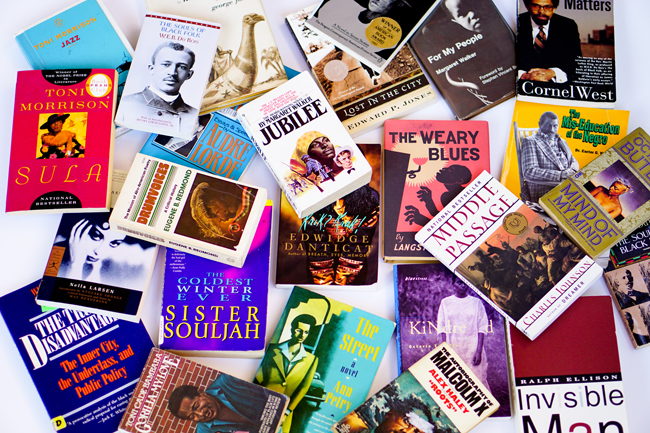
https://howtoplaythedjembedrums.com/african-american-history-through-literature/
